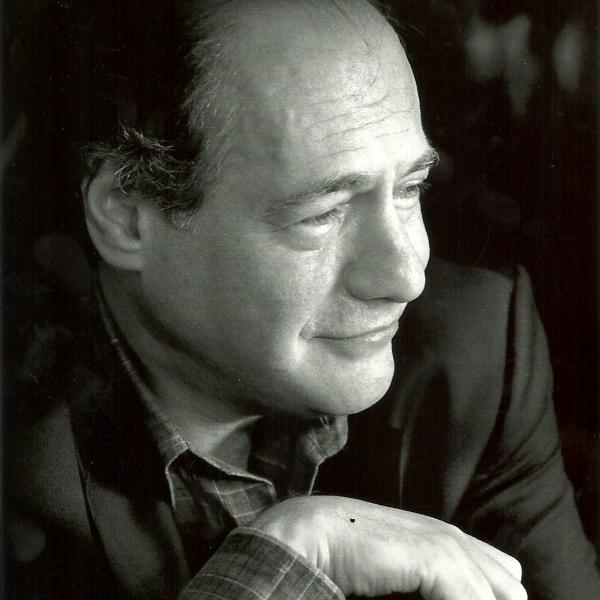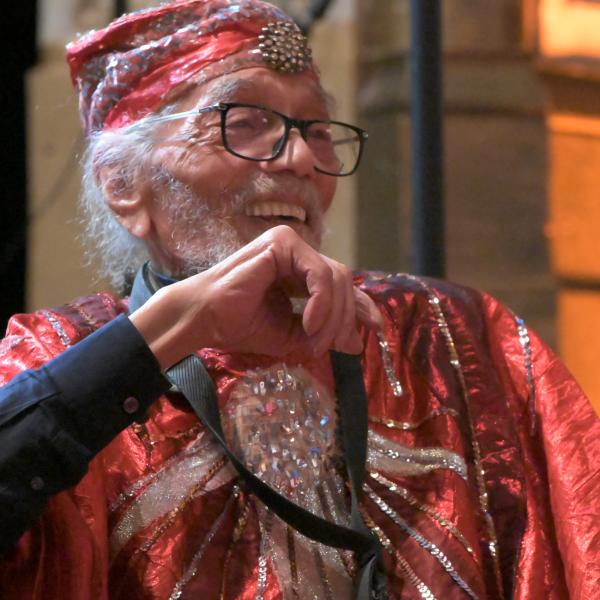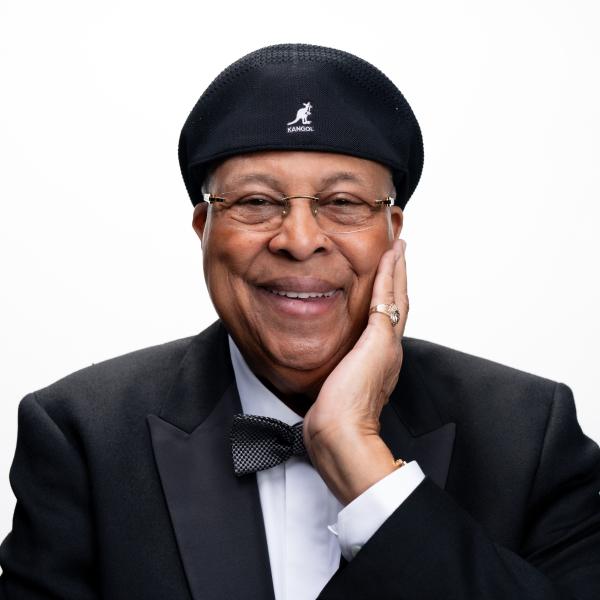On September 10, 2015, President Obama presented the 2014 National Medal of Arts and the National Humanities Medal at a ceremony at the White House. The National Medal of Arts is the nation's highest award in the arts; the National Humanities Medals are the nation's highest honor in the humanities.
The recipients and citations:
National Medal of Arts
John Baldessari for his contributions as a visual artist. His ambitious work combines photography, painting, and text to push the boundaries of image, making him one of the most influential conceptual artists of our time. (Venice, CA)
Ping Chong for his contributions as a theater director, choreographer, and video and installation artist. Mr. Chong’s innovative performances explore race, history, technology, and art to challenge our understanding of humanity in the modern world. (New York, NY)
Miriam Colón for her contributions as an actress. Ms. Colón has been a trailblazer in film, television, and theater, and helped open doors for generations of Hispanic actors. (New York, NY)
The Doris Duke Charitable Foundation for supporting creative expression across the country. With generosity and a bold commitment to artistic risk, this foundation has helped artists, musicians, dancers, and actors share their talents, enriching the cultural life of our Nation. (New York, NY)
Sally Field for her contributions as an actress and filmmaker. The dignity, empathy, and fearlessness of her performances have touched audiences around the world, and she has deployed those same qualities off-screen in her advocacy for women, LGBT rights, and public health (Los Angeles, CA)
Ann Hamilton for her contributions as a visual artist. Ms. Hamilton uses time as process and material, and her work demonstrates the importance of experiencing the arts first-hand in the digital age. (Columbus, OH)
Stephen King for his contributions as an author. One of the most popular and prolific writers of our time, Mr. King combines his remarkable storytelling with his sharp analysis of human nature. For decades, his works of horror, suspense, science fiction, and fantasy have terrified and delighted audiences around the world. (Bangor, ME)
Meredith Monk for her contributions as a composer, singer, and performer. Renowned for her groundbreaking vocal techniques, Ms. Monk has reimagined the instrument of voice with her innovative work. (New York, NY)
George Shirley for his contributions as a tenor. The first African American tenor to sing in a leading role at the Metropolitan Opera, Mr. Shirley has captivated audiences for more than 50 years with his masterful performances. As a pioneer and as a teacher, Mr. Shirley has paved the way for generations of aspiring African American opera singers. (Ann Arbor, MI)
University Musical Society for presenting the performing arts to communities in Michigan. For over a century, the Society has brought world-class orchestras, dance ensembles, jazz performers, and theater companies to Michigan, while supporting the study and creation of new works. (Ann Arbor, MI)
Tobias Wolff for his contributions as an author and educator. His raw works of fiction examine themes of American identity and individual morality. With wit and compassion, Mr. Wolff’s work reflects the truths of our human experience. (Stanford, CA)
National Humanities Medal
The Clemente Course In The Humanities for improving the lives of disadvantaged adults. The Clemente Course has brought free humanities education to thousands of men and women, enriching their lives and broadening their horizons.
Annie Dillard for her profound reflections on human life and nature. In poetry and in prose, Ms. Dillard has invited us to stand humbly before the stark beauty of creation.
Everett L. Fly for preserving the integrity of African-American places and landmarks. A landscape architect, Mr. Fly has worked tirelessly to win historical recognition for Eatonville, Florida, Nicodemus, Kansas, and other sites central to African-American history, preserving an important part of our broader American heritage.
Rebecca Newberger Goldstein for bringing philosophy into conversation with culture. In scholarship, Dr. Goldstein has elucidated the ideas of Spinoza and Gödel, while in fiction, she deploys wit and drama to help us understand the great human conflict between thought and feeling.
Evelyn Brooks Higginbotham for illuminating the African-American journey. In her writings and edited volumes, Dr. Higginbotham has traced the course of African-American history, and deepened our understanding of the American story.
Jhumpa Lahiri for enlarging the human story. In her works of fiction, Dr. Lahiri has illuminated the Indian-American experience in beautifully wrought narratives of estrangement and belonging.
Fedwa Malti-Douglas for her studies of Arabic letters. Dr. Douglas has mapped the discourse of gender and letters in the Arab Middle East and applied her insights to American culture.
Larry McMurtry for his books, essays, and screenplays. Mr. McMurtry’s work evokes the character and drama of the American West with stories that examine quintessentially American lives.
Vicki Lynn Ruiz for her contributions as a historian. In monographs and edited volumes, Dr. Ruiz has pioneered the history of twentieth-century Latinas in a distinguished career that began with collecting oral testimony from Mexican immigrants who worked in U.S. canning factories.
Alice Waters for celebrating the bond between the ethical and the edible. As a chef, author, and advocate, Ms. Waters champions a holistic approach to eating and health and celebrates integrating gardening, cooking, and education, sparking inspiration in a new generation.




